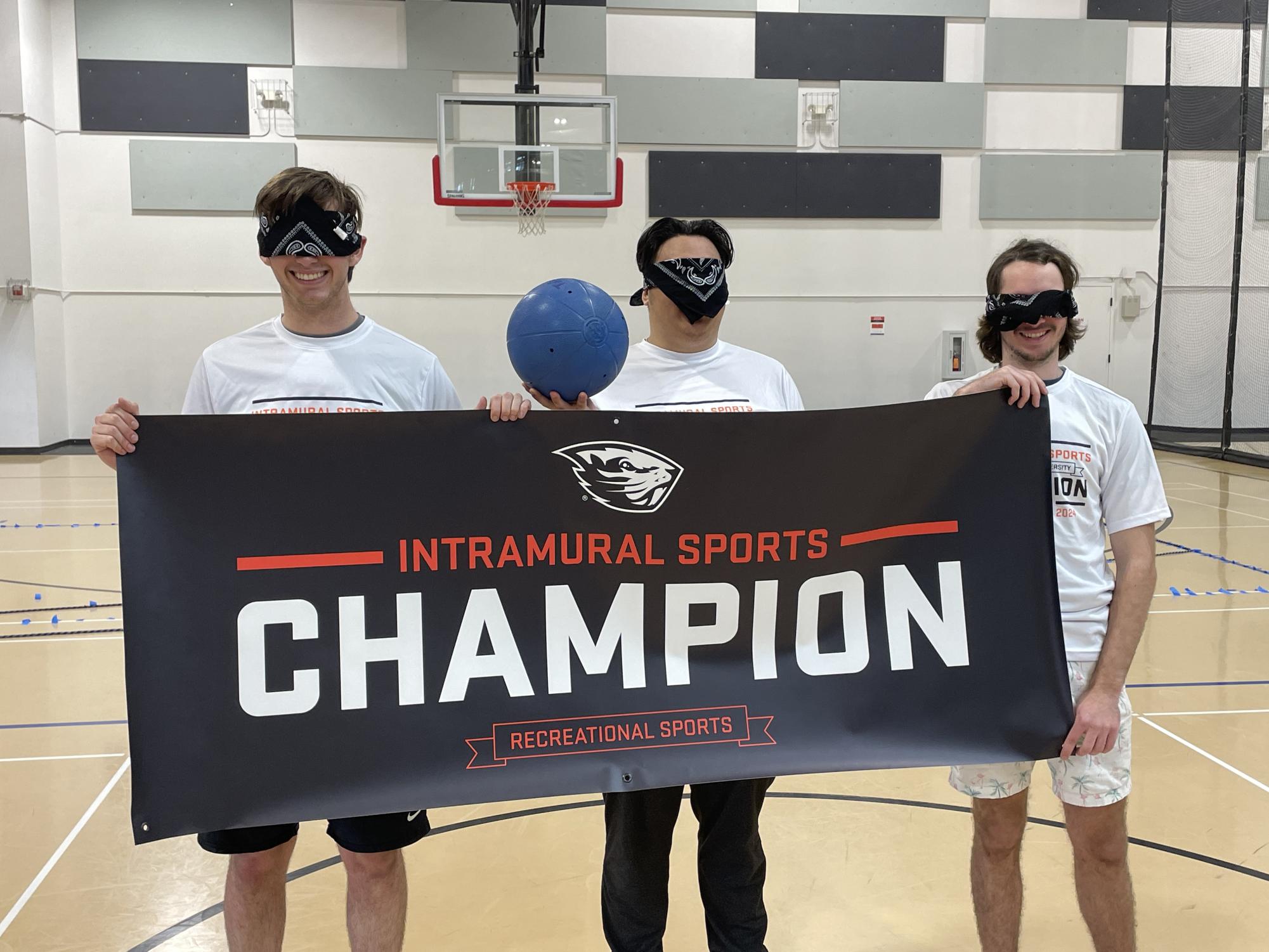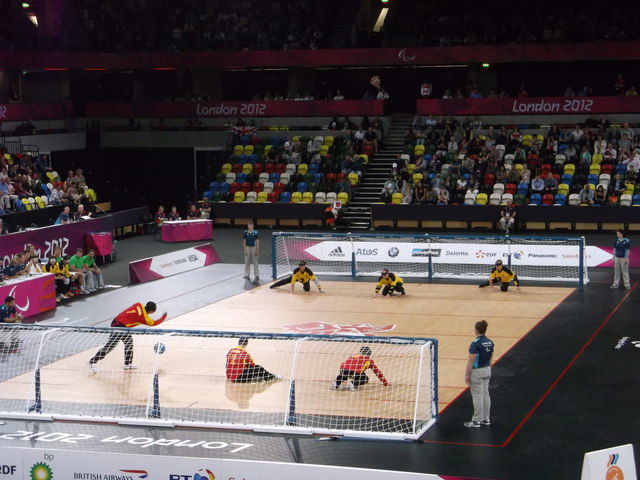“You need to lock in, see it!” Lucas Kinzler shouted to his teammate Gabe Chaparro. Chaparro stood there, ball in hand, with his eyes covered by a blindfold.
They were playing in the championship game of the intramural goalball tournament. On the courts in the McAlexander Fieldhouse in February, three teams competed for the goalball title with the Geezer Goalies remaining victors for the second year.
The IM goalball tournament at Oregon State University is in its fourth year but the league didn’t draw in any students with disabilities last term.
Goalball is a team sport that was created after World War II to help visually impaired veterans with rehabilitation. The sport consists of two end zones where three teammates occupy the zone wearing blindfolds. The blindfolds even the playing field as some players have different levels of visual impairments.
In 1976, goalball debuted in the Paralympic Games in Toronto. Since then, over 100 countries have been represented in international tournaments and the Paris Olympics will host a men’s and women’s eight team tournament.
During the game, each player will roll a medicine ball across the court with the objective of getting it past the players on the other side. The ball is around three pounds and contains several bells and rattles inside, forcing all players to rely on their hearing to stop the ball.
Kinzler and Chaparro were two members of the team; Two Glasses of Milk, in this year’s IM goalball league. They were facing former champions, the Geezer Goalies.
“We were looking on the IM website and found this,” Maurice Lathouwers of the Geezer Goalies said. “It’s cool–what other sport makes you wear blindfolds.”
Down 4-2 at halftime, Kinzler tried to spark his team back into the game. Two Glasses of Milk managed to pull within one, but the experience of the Geezer Goalies prevailed and Lathouwers and his teammates, Michael Chang and Elliot Demain, took home the championship.
“It’s a hard sport,” Kinzler said after the match.
Goalball is a very unique and challenging game as it takes away one of the most used senses: sight. The fairness of the sport allows anyone to play, no matter if they have a disability or not.
The Oregon State University Campus Disability Database notes that 2% of students have submitted disability documentation. The three most common types of disabilities disclosed by students to the disability resource office are Attention Deficit Hyperactivity Disorder, specific learning disabilities and disabilities related to mental and emotional health.
While the population of disabled students at OSU is relatively small, there were still no disabled students participating in the goalball tournament this year.
Oregon State University offers several IM sports throughout the year but only provides a few events that are accessible to everyone, which include goalball, innertube water polo, trivia and several Esports options.
“Oh, absolutely it’s important,” Lathouwers said regarding accessible IM sports at OSU. “It’s also just fun, I’ve never seen a goalball league so it’s cool to try something new.”











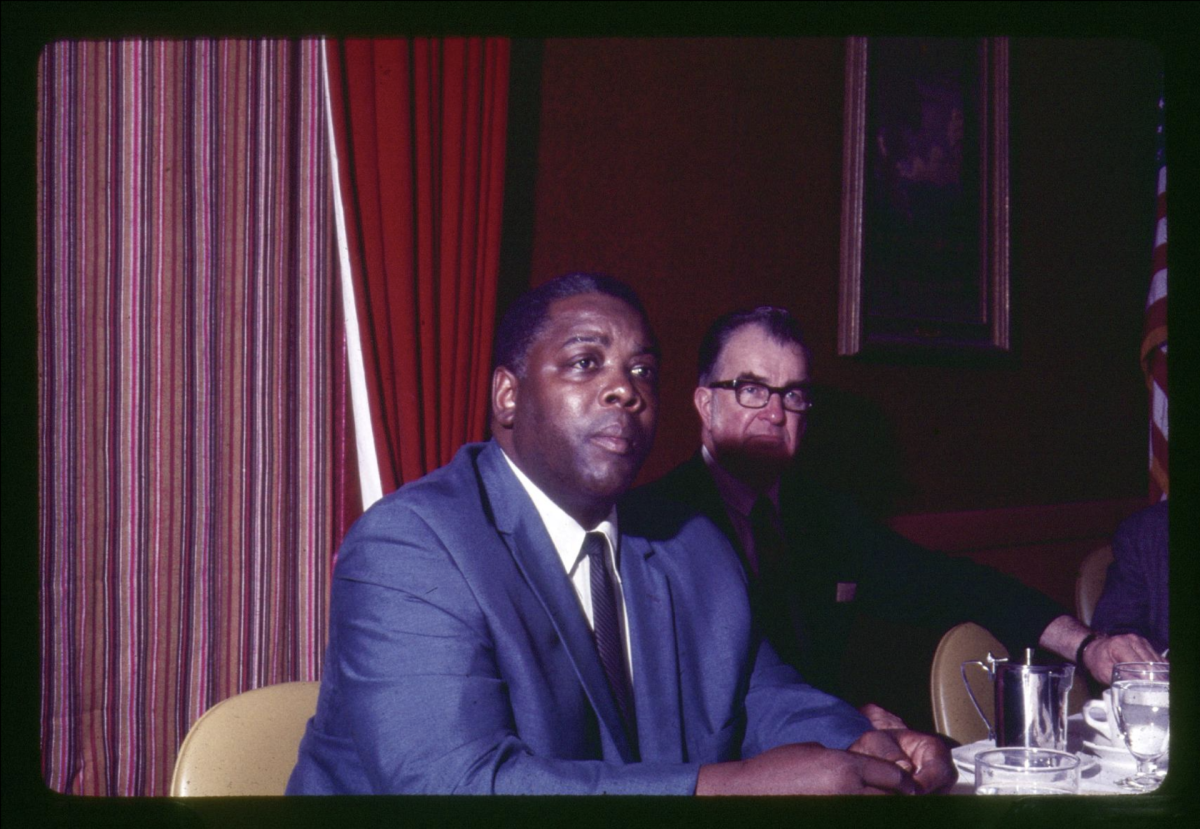
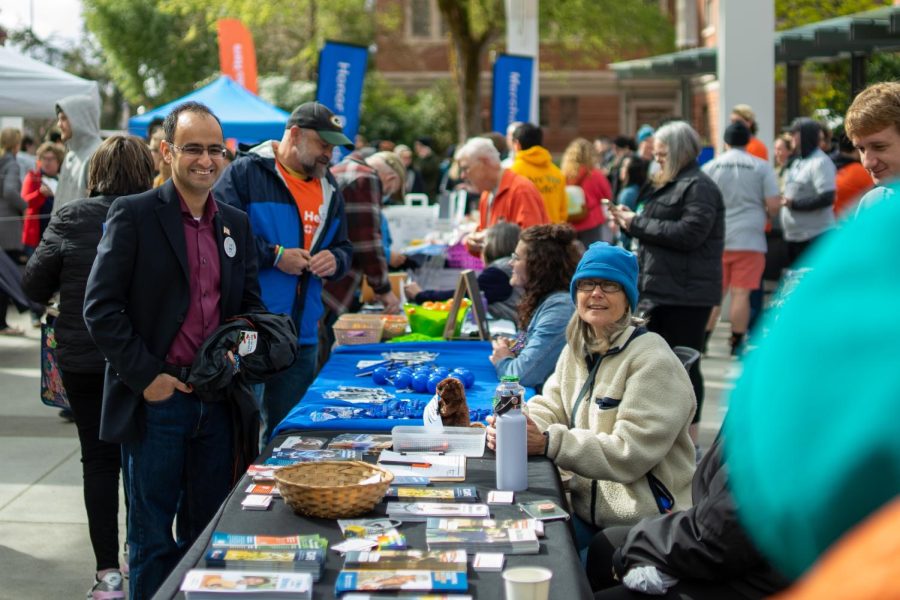




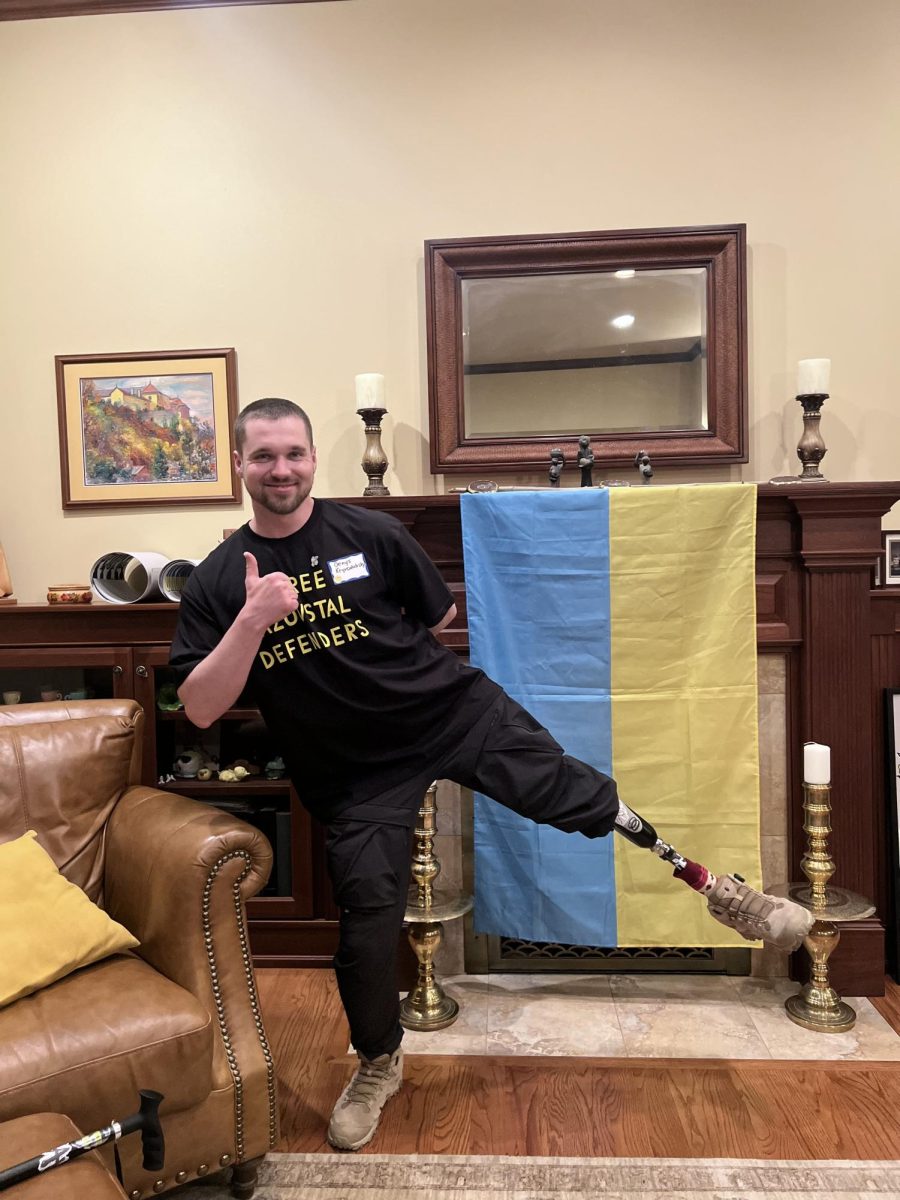










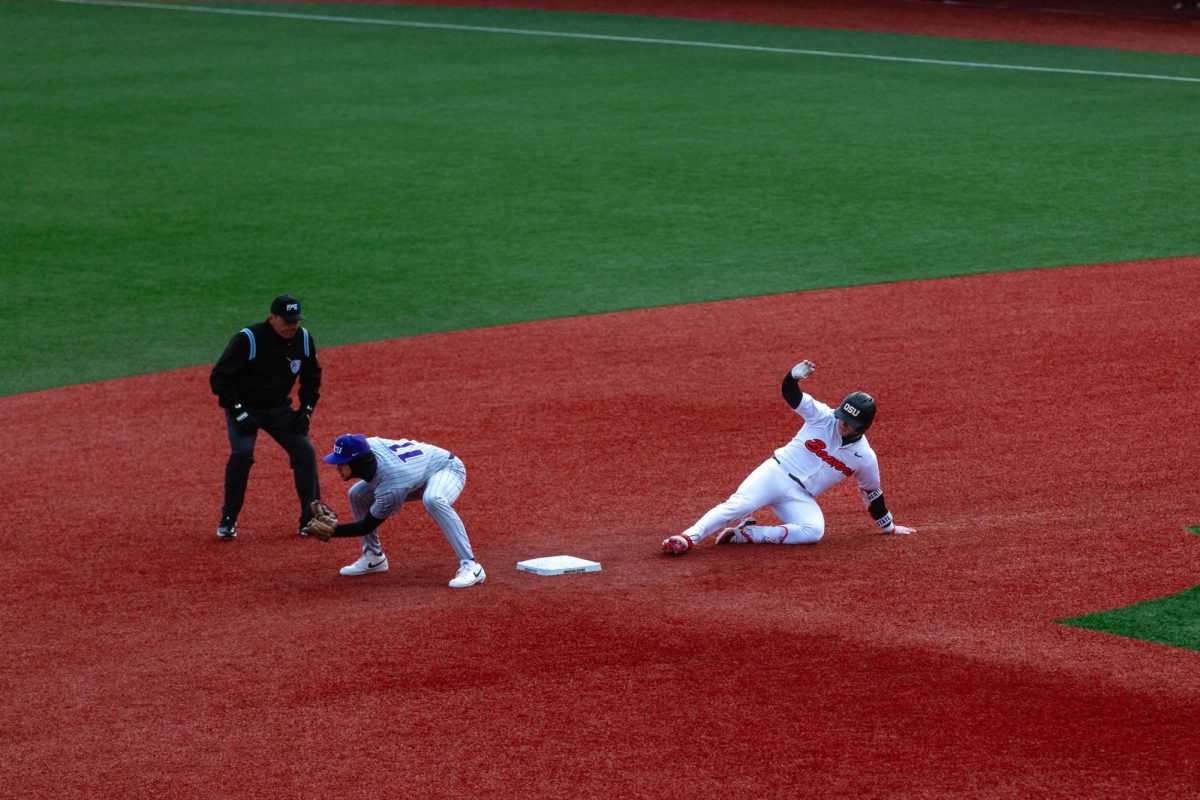
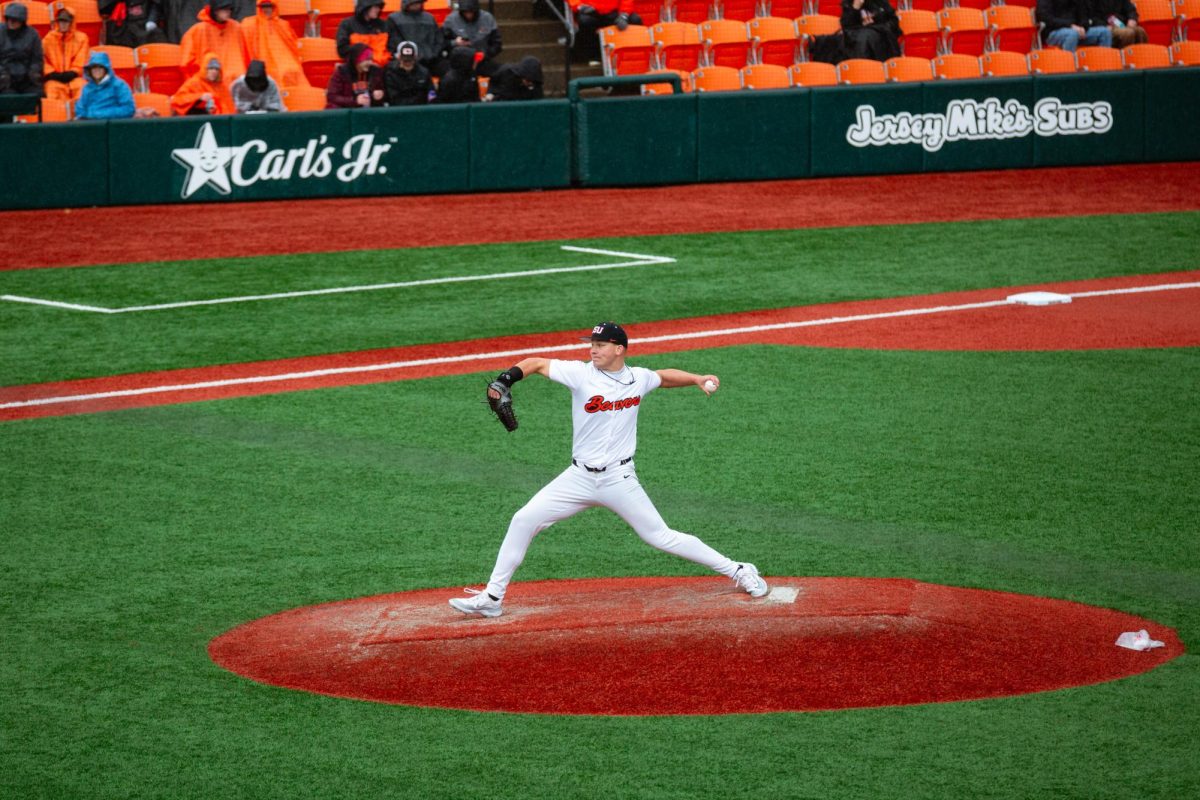






















































![Newspaper clipping from February 25, 1970 in the Daily Barometer showing an article written by Bob Allen, past Barometer Editor. This article was written to spotlight both the student body’s lack of participation with student government at the time in conjunction with their class representatives response. [It’s important to note ASOSU was not structured identically to today’s standards, likely having a president on behalf of each class work together as one entity as opposed to one president representing all classes.]](https://dailybaro.orangemedianetwork.com/wp-content/uploads/2025/03/Screenshot-2025-03-12-1.00.42-PM-e1741811160853.png)























